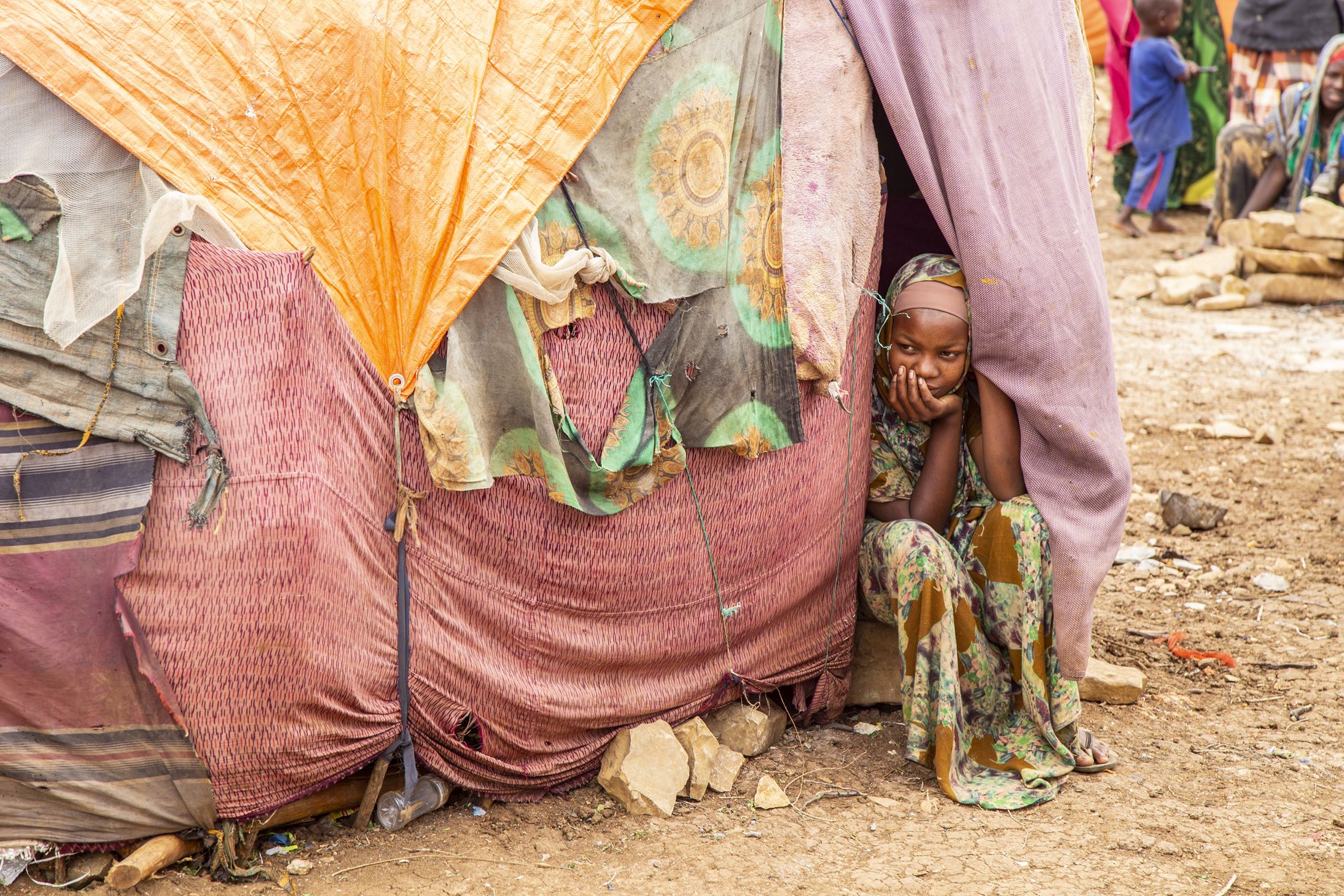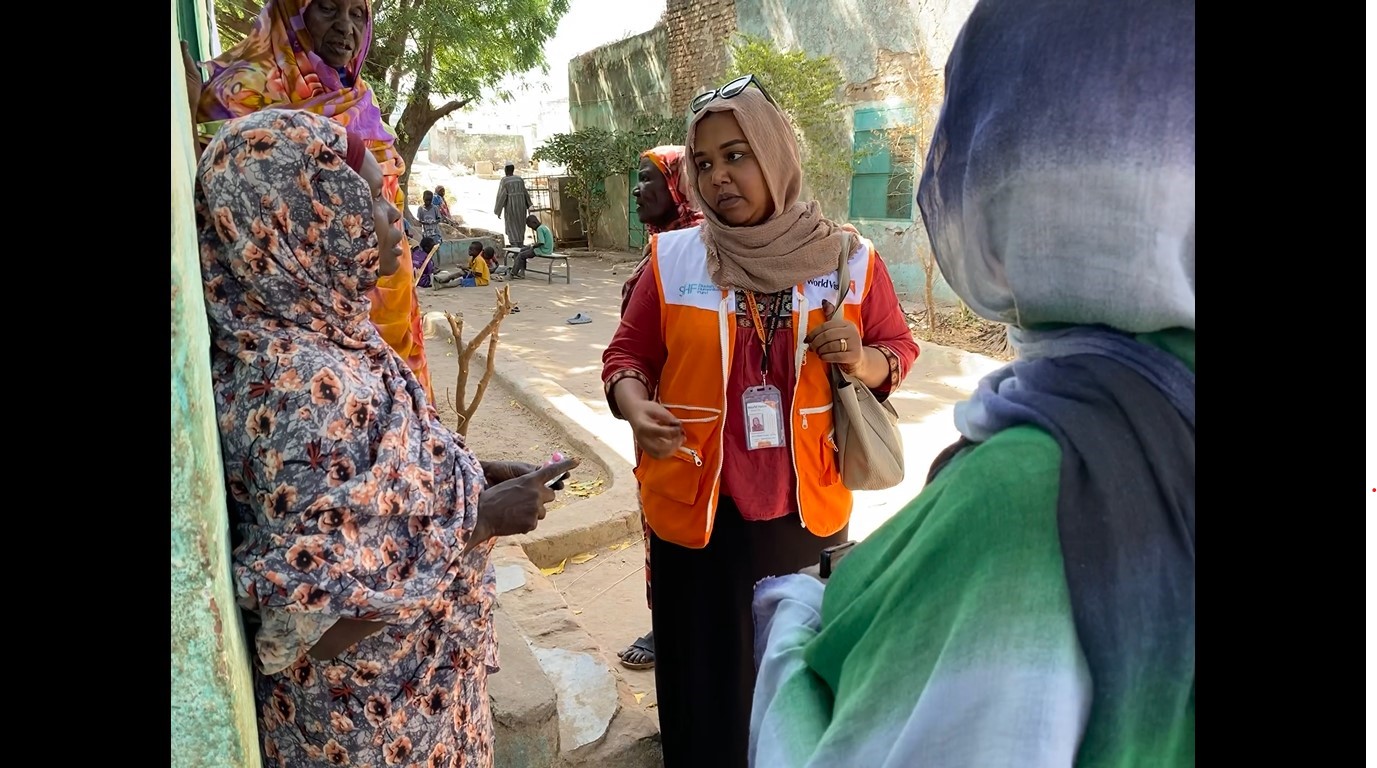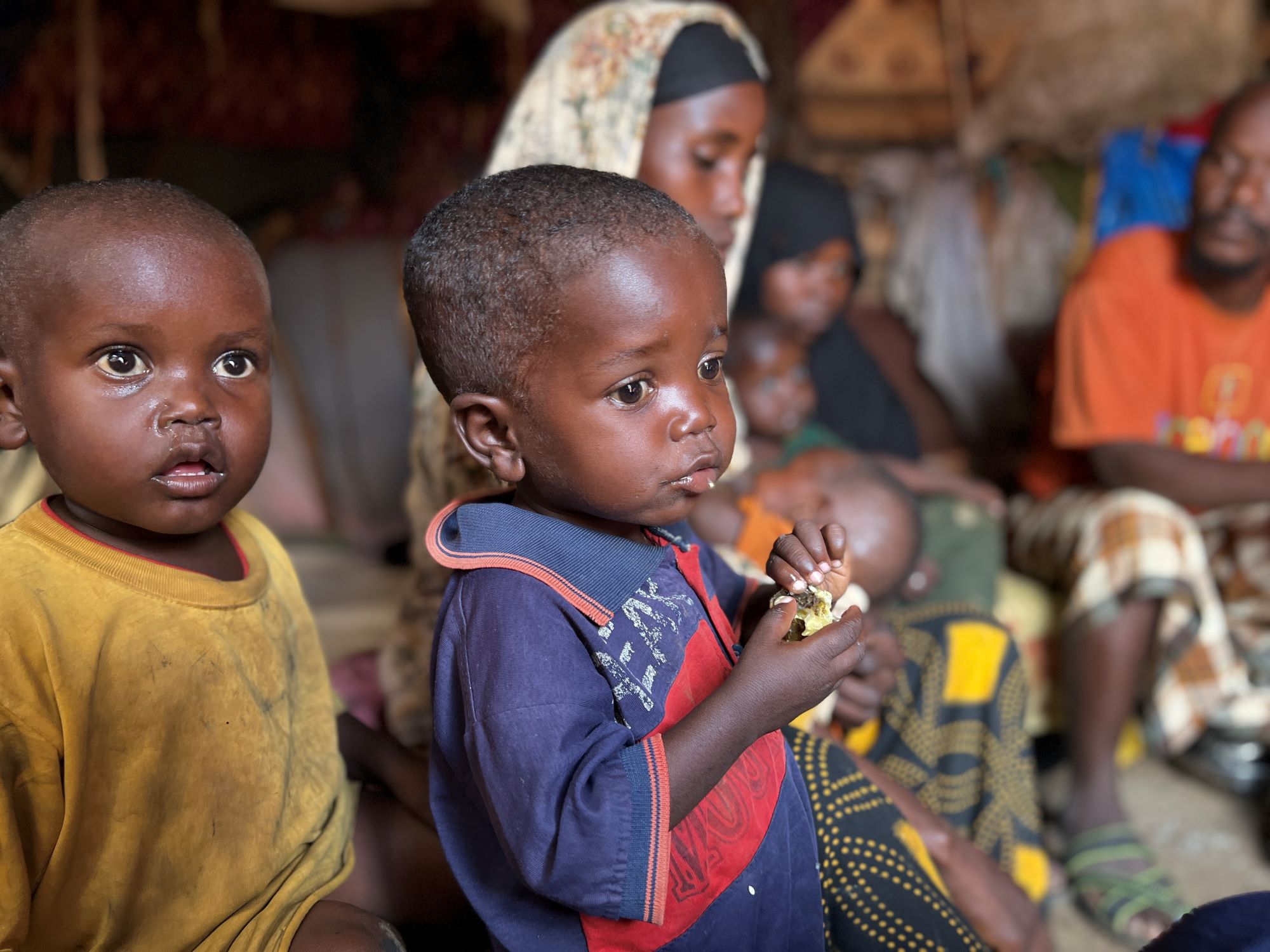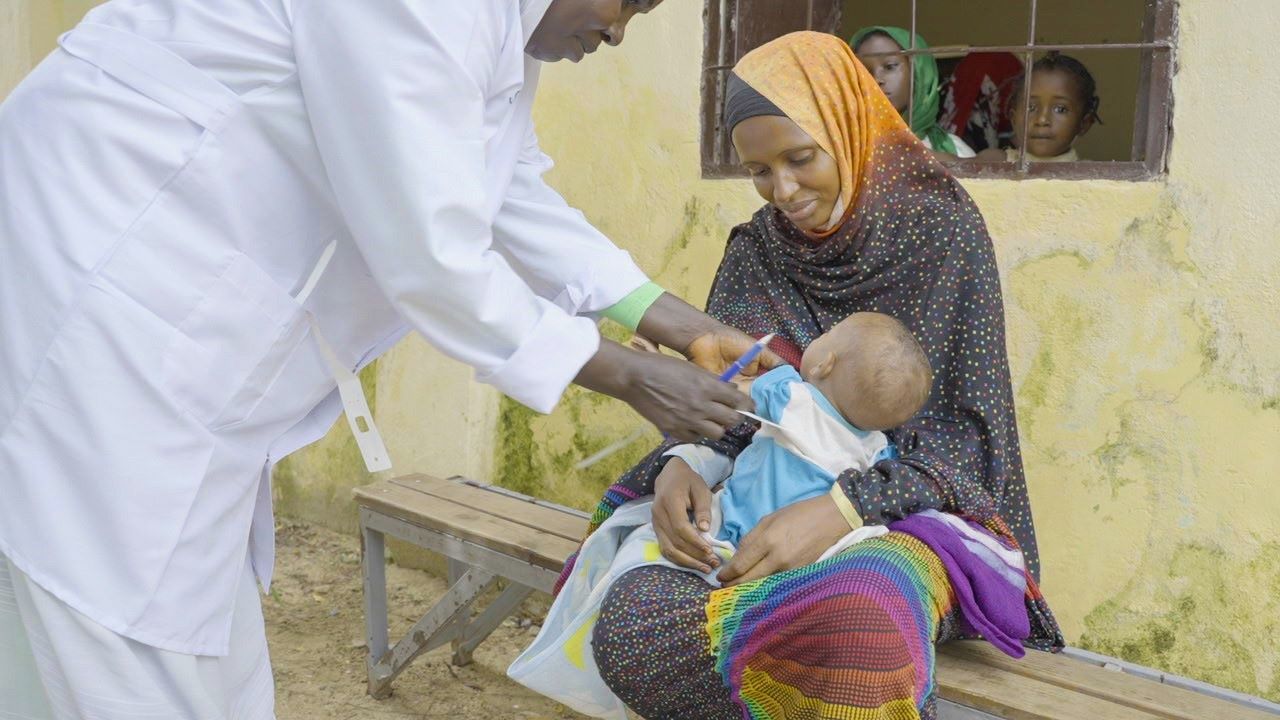
Mobile clinics in Sudan
Discover how we're reaching displaced families with medical support.
Prioritising children's health
World Vision focuses on essential ways to improve child health - from promoting good nutrition, to helping prevent infection and disease, right through to ensuring access to essential health services.
On World Health Day (7 April), we're highlighting how mobile clinics are helping families and children get the medical treatment they need.
Keep reading to discover what mobile clinics are and why they have been essential for people who have been displaced by the conflict in Sudan.
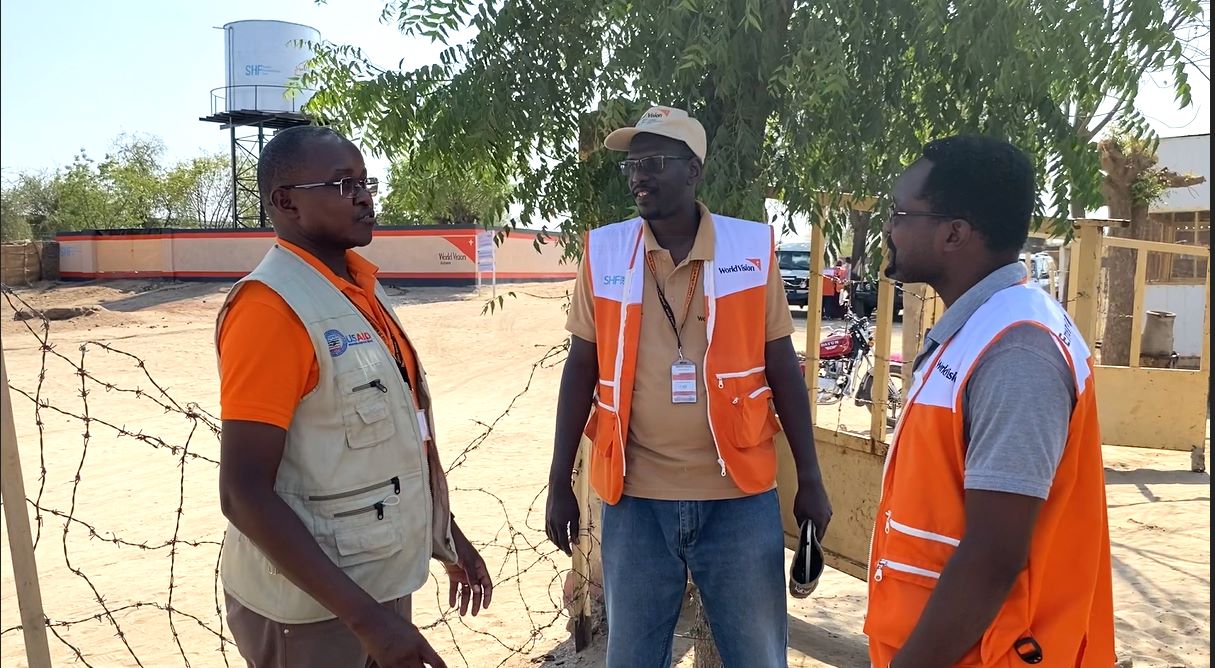
What is a mobile clinic?
Mobile clinics, also known as mobile health clinics, are vehicles that have been customised to travel to communities and provide healthcare. They enable medical teams to reach people who aren't able to access health services. Mobile clinics are a flexible and reassuring option for displaced families.
In Sudan – a country facing ongoing conflict – we're using mobile clinics to provide free health and nutrition services to affected communities, especially children.
How mobile clinics work
The mobile clinics offer a comprehensive health and nutrition package, including medical consultation, reproductive health services (antenatal, postnatal, and clean birth kits), laboratory tests, as well as the distribution of mosquito nets and free medicine.
For nutrition, the clinics are involved in actively finding malnourished children under the age of five, pregnant and breastfeeding women and girls. Additionally, the women and girls receive tips on the best way to provide nutritious meals.
READ MORE: The effects of child hunger
Mobile clinics provide accessible healthcare
World Vision has been running 14 mobile clinic sites in Blue Nile each week since the conflict began.
Key highlights include:
- Over 2,300 pregnant women have received antenatal care services, with almost 600 receiving postnatal care.
- More than 6,000 children under the age of five received outpatient clinical care at a mobile clinic.
- Over 270 children under the age of five have been identified as malnourished and enrolled in nutrition care. Those who require inpatient care are referred to hospitals and other centres.
- Around 240 pregnant and breastfeeding women and girls have been identified as malnourished and are now in a programme to help them improve their nutrition and become healthy.
World Vision Sudan is committed to continuing to provide accessible and high-quality healthcare through mobile clinics, ensuring that vulnerable people receive the care they need during Sudan's crisis.
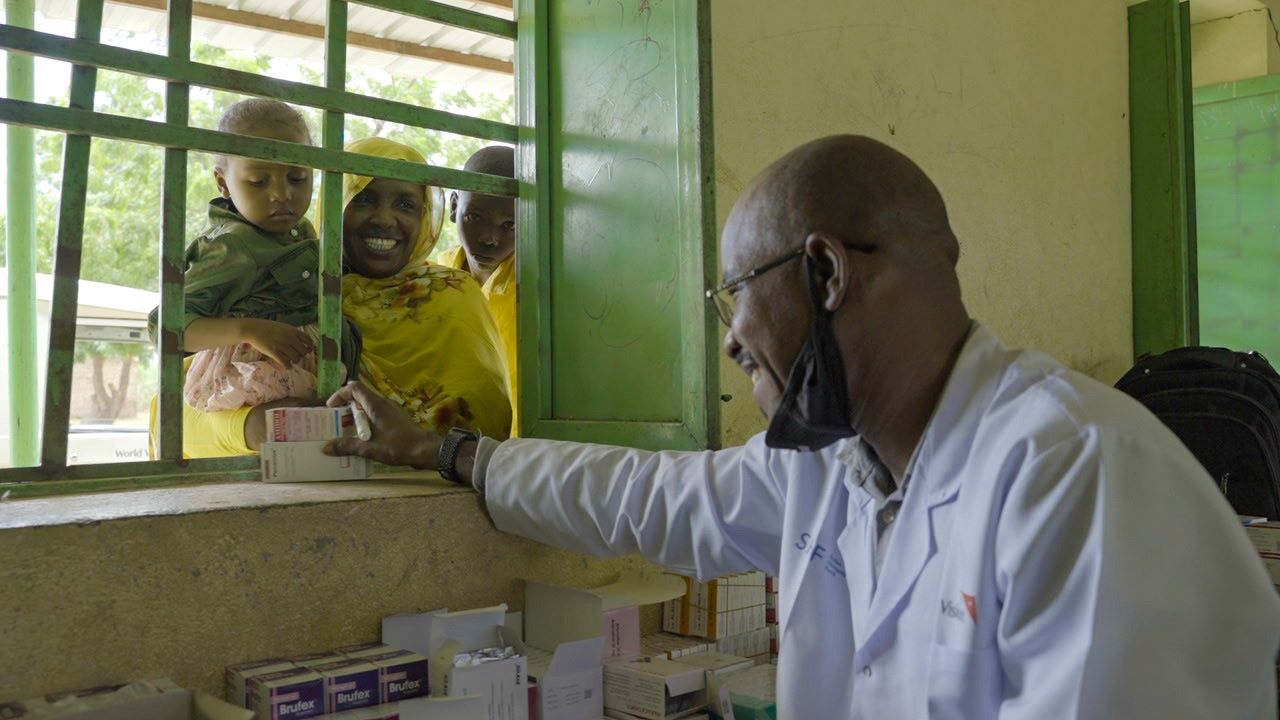
How we're helping families in Sudan
According to a survey by the Humanitarian Aid Commission (HAC) and the State Ministry of Health (SMOH), Damazine, in Blue Nile State, has one of the highest numbers of internally displaced people in Sudan.
Responding to the urgent humanitarian needs arising from this crisis, World Vision established mobile clinics in Blue Nile, providing free health and nutrition services to both those who have been displaced and the communities they’re now part of. In partnership with SMOH and HAC, this project aims to improve access to health services.
Benefitting from the mobile clinic
Hawa, a mother of three, (pictured at top of page) was forced to flee her home and, like the majority of those displaced, struggled to find shelter, feed her children, and access healthcare. She didn’t know how to get medical care for her eight-month-old daughter, Kaltoum, who was at risk of severe dehydration.
“Since we arrived in Damazine, Kaltoum has been suffering from recurrent diarrhoea and has lost weight,” says Hawa. “I have also noticed that I produce less milk.”
Thankfully, her neighbours told Hawa about the mobile clinic set up by World Vision and her baby received medical attention.
The nutrition staff at the clinic assessed Kaltoum, by measuring her Upper Mid-Arm Circumference (MUAC), which revealed that she had severe acute malnutrition. Kaltoum also had other medical issues and needed to be referred to hospital.
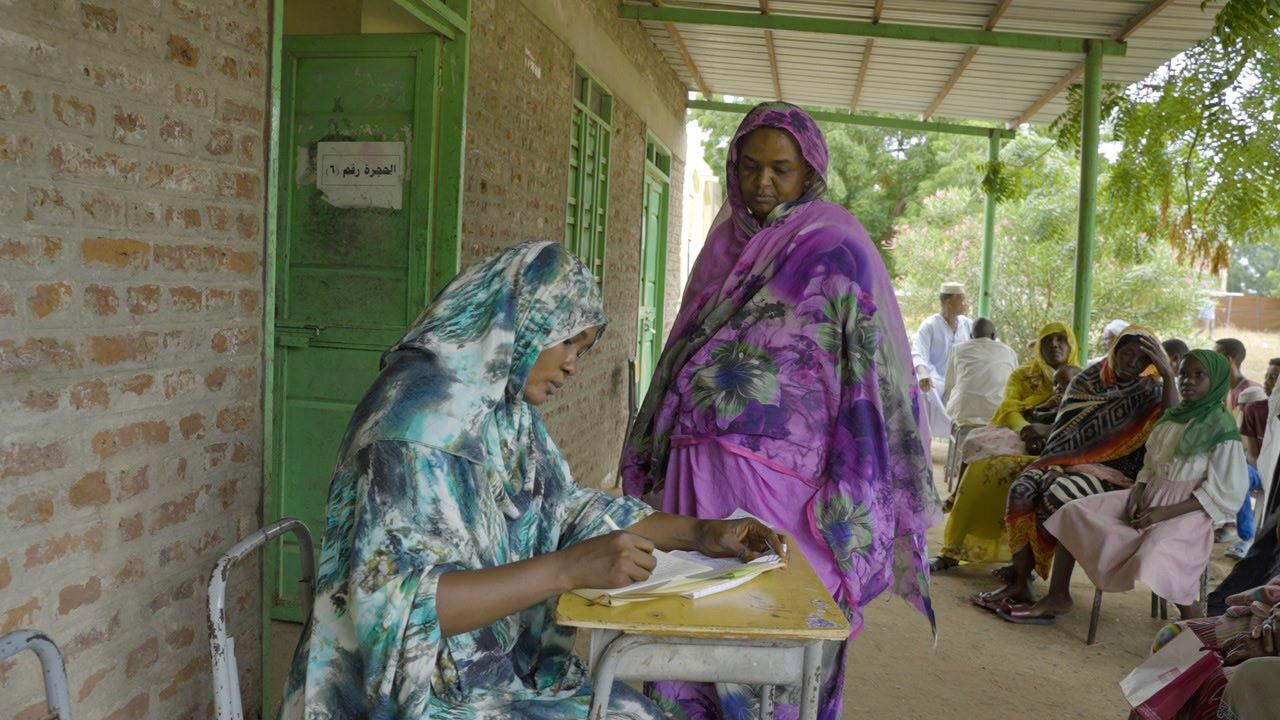
Receiving essential medical treatment
World Vision helped with Hawa and Kaltoum’s transfer and admission to hospital, where she received treatment. The nutrition team also linked Hawa with a nurturing care support group for ongoing assistance.
Another mother, Solafa, was also worried about her children. "I am unable to pay for medical care. I tried traditional remedies for my daughter's health but nothing changed."
She sought aid for her daughter Reham, who had tonsillitis, after learning about World Vision's mobile clinic. The clinic provided essential medications.
According to Mahadi Mohammed, a community leader who coordinates with the mobile team to ensure that the work of the clinic goes smoothly, his community is hosting 160 households displaced from Khartoum. “We work with the mobile team to make sure that [displaced people] are looked after appropriately, side by side with the members of the host community,” says Mahadi.
Enough to child hunger
Sudan is just one country where conflict is causing people to flee from home and head straight into other problems, like access to health – and food.
The global hunger crisis is the worst we’ve seen in decades and is impacting millions of people worldwide. Many children are on the brink of starvation, due to factors like conflict and climate change. We’re saying Enough.
Help us ensure every child has enough to eat to survive and thrive through our ENOUGH campaign. Together we can make the difference.

